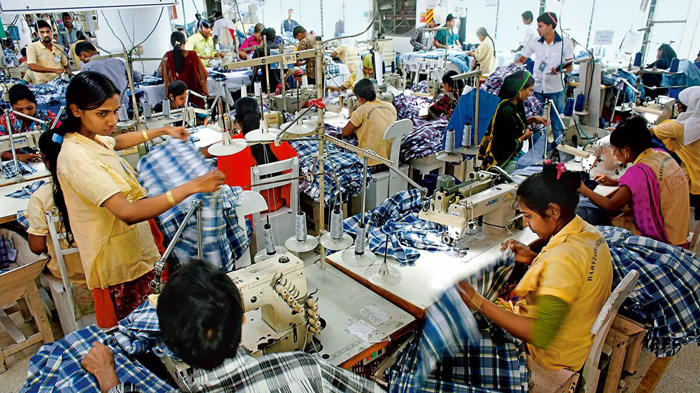
A new study by the International Finance Corporation (IFC) and LightCastle has sparked a debate in the Bangladeshi garment industry: Can e-commerce platforms directly connect manufacturers with Western consumers, cutting out middlemen and boosting profits? The research suggests immense potential, with an estimated $489 million in additional revenue by 2027 across the US, EU, and Africa.
However, while Bangladesh's story is compelling, it's not the only one. Manufacturers in Vietnam, another textile powerhouse, are increasingly turning to e-commerce platforms like Alibaba and Amazon to sell directly to consumers. Vietnamese firms like Sacomtex and Vinatex are building their online presence, offering customized clothing and competing with established Western brands.
Building a virtual bridge
The shift to e-commerce presents both challenges and opportunities. Establishing international warehouses closer to target markets, streamlining customs and logistics, and navigating complex banking regulations are all hurdles to overcome. However, the potential benefits are significant. And these include: reduced costs, shorter lead times, and direct access to consumer preferences.
The IFC study identifies several key benefits of e-commerce for Bangladesh garment manufacturers:
• Reduced lead times: Bypassing traditional intermediaries can streamline the process, leading to faster delivery and happier customers.
• Cost-effectiveness: Cutting out middlemen translates to lower prices and potentially higher profits for both producers and consumers.
• Simplified business procedures: Online platforms can streamline international trade complexities, making it easier for Bangladeshi suppliers to reach global markets.
• Direct access to consumers: E-commerce allows brands to connect directly with end consumers, fostering brand loyalty and providing valuable market insights.
Turkey's success story
Turkey's ‘Made in Turkey’ platform offers a promising example. Launched in 2019, it connects Turkish apparel manufacturers with global buyers, eliminating intermediaries and showcasing diverse product offerings. The platform has fostered increased exports and brand recognition for Turkish textiles.
India too has tried this path. The ‘Make in India’ initiatives are promoting online marketplaces for Indian apparel, tapping into the country's rich textile heritage. These examples highlight the potential of e-commerce to empower garment-producing nations, fostering economic growth and job creation.
The garment industry in Bangladesh, and other developing nations, needs government support to navigate the e-commerce transition. Streamlining customs procedures, facilitating cross-border payments, and fostering digital literacy among manufacturers are crucial steps. Bangladesh's BGMEA president, Faruque Hassan, advises simplified trade regulations and policy support to empower local entrepreneurs to establish virtual marketplaces.
E-commerce: A future beyond garment exports
The potential of e-commerce extends beyond the garment industry. As Hassan rightly points out, virtual platforms can empower manufacturers in various sectors to reach international markets. From furniture and handicrafts to agricultural produce, e-commerce offers a direct route to consumers, bypassing traditional trade barriers and empowering producers in developing economies.
The road does throw up numerous challenges. These include:
• Policy hurdles: Streamlining customs, port, and banking regulations is crucial to facilitate smooth online transactions.
• Logistics complexities: Establishing international warehouses and navigating the Red Sea shipping impasse require innovative solutions.
• Digital infrastructure: Building a robust e-commerce ecosystem requires investment in technology and digital skills.
While challenges remain, the potential of e-commerce for apparel exports is undeniable. Manufacturers in Bangladesh, Vietnam, and beyond must adapt to the digital landscape, embrace new technologies, and collaborate with governments and industry partners to build efficient virtual marketplaces. This not only holds the promise of increased profits but also empowers producers, promotes fair trade practices, and ultimately shapes a more equitable global marketplace.












